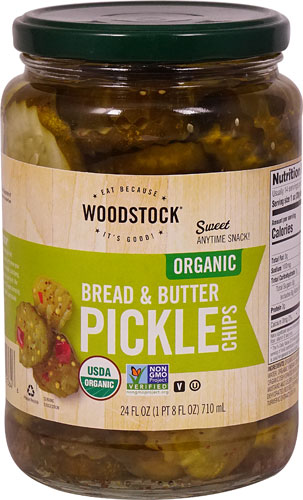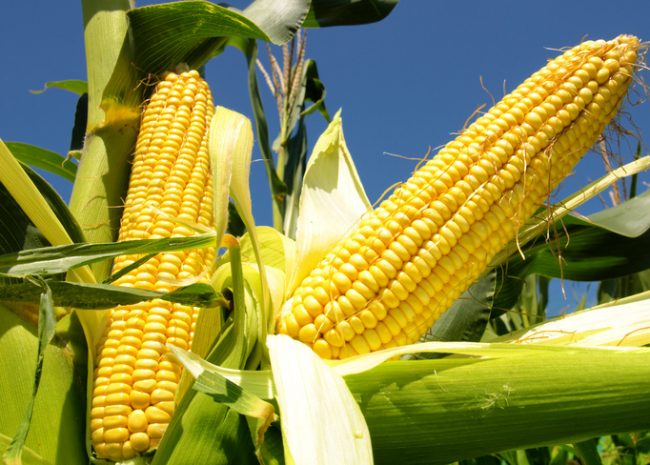Americans don’t see eye to eye on genetically modified foods.
Nearly 4 of every 10 Americans think genetically modified foods do more harm to someone’s health than other foods, according to a 2015 survey by the Pew Research Center. On the other end of spectrum, nearly 5 in 10 Americans see no difference between genetically modified (GM) and non-GM foods, the survey shows, and 1 in 10 actually think GM foods are better for their health.
As underscored by the Pew survey results, there’s a wide divide in the U.S. when it comes to GM foods. Many scientists and other experts maintain there’s no proof that genetic modification of crops is dangerous, whereas many critics insist there’s no reason for genetic modification to be part of our food chain.
Generally speaking, commercially produced GM crops are designed to stand up to weed-killing herbicides and to boost the effectiveness of bug-killing insecticides. GMOs (genetically modified organisms) frequently show up in snack foods, fast-food items, packaged foods, cereals, soft drinks, breads and sandwich meats.
Here are three points of contention between the two sides in the GMO debate.
Are GM foods bad for your health?
Maybe: The Non-GMO Project declares that given the lack of credible independent studies about GMOs, their safety “is unknown.”
“Increasingly, citizens are taking matters into their own hands and choosing to opt out of the GMO experiment,” the Non-GMO Project says.
The nonprofit organization seeks to verify the non-GMO status of natural and organic foods, although some critics have called into question the authenticity of its verification process.
Adding ammunition to the Non-GMO Project’s arguments, the European Network of Scientists for Social and Environmental Responsibility issued a statement in 2013 rejecting assertions by some GM seed developers, along with some scientists, commentators and journalists, that “scientific consensus” has been reached on GMO safety and that the GMO debate is over.
The European group urged further scientific study of GMOs.
“Decisions on the future of our food and agriculture should not be based on misleading and misrepresentative claims that a ‘scientific consensus’ exists on GMO safety,” the European group says.
Some of the groups that are at the very least skeptical of GMOs are the Royal Society of Canada and the British Medical Association. Close to 40 countries have instituted some sort of ban on GM crops.
Maybe not: In 2016, the National Academies of Sciences, Engineering and Medicine released a study — a review of nearly 900 pieces of research on GM crops — that found “no substantiated evidence” of a difference in human health risks between GM crops and conventional crops. The study looked at the three crops that make up nearly all GM crops: corn, soybeans and cotton.
Among those in agreement with the National Academies of Sciences, Engineering and Medicine on this position are the American Association for the Advancement of Science (although the association’s stance has met with some resistance) and the World Health Organization.
“The truth is, the food we eat has been genetically modified for decades,” says Dr. Konda Reddy, a physician at Physicians Weight Loss Centers in Orlando, Florida. “Farmers have a history of selectively breeding plants for fuller crops, better taste and larger fruits. The process is just a bit more complex now and takes place in a lab.”
Are GM foods bad for the environment?
Maybe: The Non-GMO Project complains that more than 80 percent of GM crops grown around the world have been engineered to tolerate herbicides, which are weed-killing chemicals.
As a result, the anti-GMO group says, the use of toxic herbicides has jumped fifteenfold since GMOs initially were introduced. The group notes that in 2015, the World Health Organization said glyphosate, the main ingredient in the Roundup brand of herbicide, might cause cancer in humans.
Furthermore, the Non-GMO Project says, GM crops have given rise to “superweeds” and “superbugs” that can be killed only with increasingly toxic chemicals.
“Most GMOs are a direct extension of chemical agriculture and are developed and sold by the world’s largest chemical companies,” the group says. “The long-term impacts of these GMOs are unknown. Once released into the environment, these novel organisms cannot be recalled.”
Maybe not: The study from the National Academies of Sciences, Engineering and Medicine “found no conclusive evidence of cause-and-effect relationships” between GM crops and environmental damage.
“However,” the scientists say, “the complex nature of assessing long-term environmental changes often made it difficult to reach definitive conclusions.”
The study says the use of insect-resistant or herbicide-resistant crops doesn’t decrease plant and insect diversity on farms, and insect-resistant crops sometimes actually increase insect diversity.
Are GM foods bad for farmers?
Yes: Biotech companies hold patents that govern the use and distribution of their GM seeds by farmers, the Non-GMO Project says.
“As a result, the companies that make GMOs now have the power to sue farmers whose fields have been contaminated with GMOs, even when it is the result of the drift of pollen from neighboring fields,” the project says.
Therefore, the group says, GM crops pose a “serious threat” to independent farms and to food security.
No: Scientific evidence suggests that farmers have benefited economically from GM soybean, corn and cotton crops, although several variables — such as farming practices and agricultural infrastructure — can put a dent in financial gains, according to the National Academies of Sciences, Engineering and Medicine.
For GM crops to be sustainable, approaches to pest management must be improved so that they’re “economically feasible,” the science group says.
The group’s study goes on to say that insect-resistant GM crops have lessened crop loss caused by pests, but pre-GM and post-GM data doesn’t point to a bump in crop y




